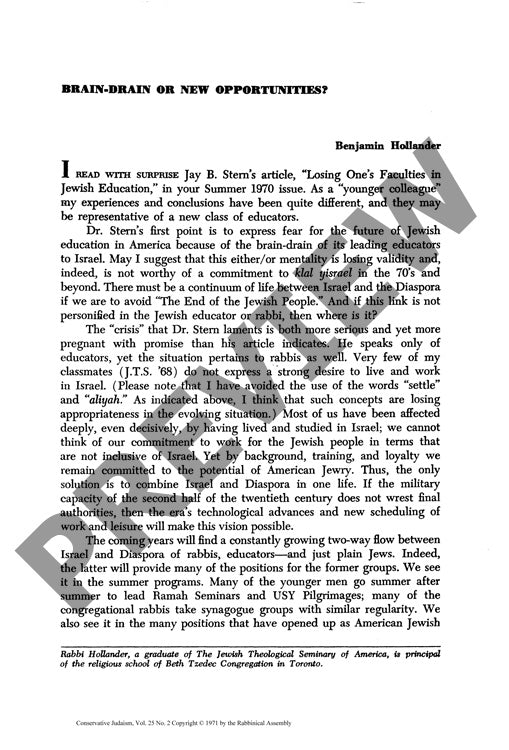Brain Drain or New Opportunities
Couldn't load pickup availability
When Jewish educators began migrating from America to Israel in the 1970s, education leaders fiercely debated whether this exodus represented a crisis or an opportunity. Through a response-counterresponse format, Rabbi Benjamin Hollander challenges Dr. Jay B. Stern's characterization of this migration as a detrimental "brain drain," proposing instead that these patterns could forge a dynamic educational continuum between Israeli and Diaspora Jewish communities. Analysis reveals a generational shift, with younger educators increasingly prioritizing flexible, transnational careers over traditional institutional loyalty. Hollander proposes innovative solutions including educational television programming, informal learning environments modeled after Camp Ramah, and rotating positions between Israel and America. The debate extends beyond migration to fundamental questions about educational philosophy, contrasting Hollander's appreciation-based learning approach with Stern's skill-based objectives. As technological advances and evolving work patterns reshape professional possibilities, research suggests new models of Jewish education can transcend geographical boundaries. Rather than viewing educator migration as problematic, Jewish communities would benefit from embracing professional mobility and developing institutional frameworks that support transnational engagement, ultimately strengthening both Israeli and American Jewish education through enhanced connectivity and resource sharing.

More Information
-
Physical Description
-
Publication Information
Published 1971
ISBN
-
Publication Credits
Benjamin Hollander

